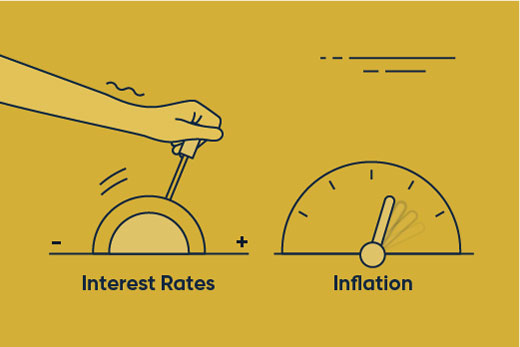This page was last updated on 11 May 2023
Interest rates have gone up a lot recently. The reason for that is there is an important link between interest rates and inflation.
Raising interest rates is the best way the Bank of England has to make sure inflation comes down and stays low. But it takes time to work. Usually, up to two years.
In short, higher interest rates will work because they will mean that less money will be spent in the UK (than if interest rates had not changed).
When overall spending in the economy falls, price rises slow down. And this brings down the UK’s inflation rate.
Higher interest rates can also increase the value of the pound compared to other currencies. That will tend to push down the prices of goods that businesses import from abroad, which also helps to lower inflation.

